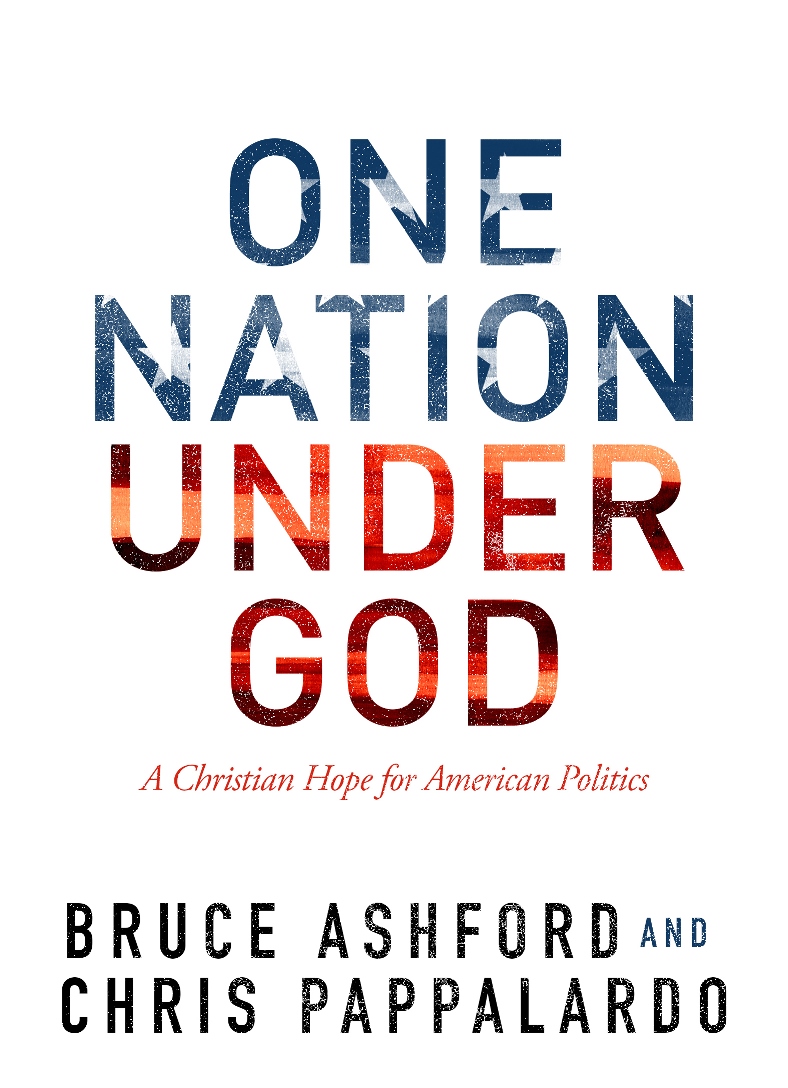 Christians continually struggle to find the right approach, balance, and tone in their political witness, either co-opting the Gospel for the sake of political ends or retreating altogether out of fear of the same.
Christians continually struggle to find the right approach, balance, and tone in their political witness, either co-opting the Gospel for the sake of political ends or retreating altogether out of fear of the same.
In their new book, One Nation Under God: A Christian Hope for American Politics, Bruce Ashford and Chris Pappalardo pave a fresh way forward. Though I haven’t quite finished it, thus far the book offers a refreshingly rich assessment of political ideology as it relates (or doesn’t) to the Gospel and Christian mission.
In a piece for Canon and Culture, Ashford whets our appetites on this same topic, providing a clear overview of how Christianity differs from conservatism and progressivism, as well as where and how we might engage or abandon each.
From my own experience, Christians seem to have an easier time discerning these distinctions with progressivism, most likely due to its overt rejection of or disregard for permanent truths. With conservatism, however, we tend to forget that without a particular focus on transcendence, conservatism languishes in its own shortsightedness and folly.
On this, Ashford’s observations are particularly acute:
Conservatives, despite their high opinion of the past, cannot merely accept all of it uncritically. So when conservatives do criticize their own tradition, as they must, they are forced to rummage around for some norms that transcend history (e.g. opposing slavery). Pure conservatives, therefore, often find themselves in tactical alliance with Christians, even if they cannot stomach a long-term strategic alliance with them. Conservatism pairs well with Christianity when—and only when—conservatives are using Christians as a means to an end.
But being a “means” to someone else’s “end” is tricky business. Evangelicals in the United States, for instance, might be surprised to learn that many of the powerful conservatives in the United States view evangelicals as useful idiots. Evangelicals may fancy that political conservatives stand with them ideologically and strategically, when in fact many conservatives would reject many of the deeply-held convictions of evangelicals. The alliance is more temporary and tactical, perhaps, than it is long-term or strategic. In upcoming years, as evangelical Christianity looks more and more strange to American society, evangelicals may no longer be viewed as useful idiots. We may be seen merely as idiots.
As for how we might view this more broadly, Ashford warns Christians against idolatrous political ideologies of any kind, reminding us to set our sights first on the transcendent truths of the Gospel:
Christians throughout history have been alternately conservative and progressive. For us, we must decide what in our culture is worth conserving and what needs to be rejected so that we can progress beyond it. These sort of decisions must be made based upon Christian worldview convictions. In other words, standing alone, conservatism and progressivism are both insufficient and even idolatrous. They are both indebted far more to culture than to anything transcendent.
Conservatism treats history, rather than God, as the source of social and moral norms. It seeks to conserve the past, but does not have within its own resources the transcendent norms necessary to critique the past even as it is conserving the past. It locates evil (falsely) in progressivism rather than locating it in the human heart and identifying it wherever it is found, whether in conservative or progressive norms.
…To pursue politics in a robustly Christian manner, we must not embrace American versions of conservatism and progressivism en toto. Instead, we want to “pair” our preferred political ideology with the transcendent truths of Christianity, allowing those truths to reform our ideology.
Read the whole piece here, and buy One Nation Under God: A Christian Hope for American Politics.

